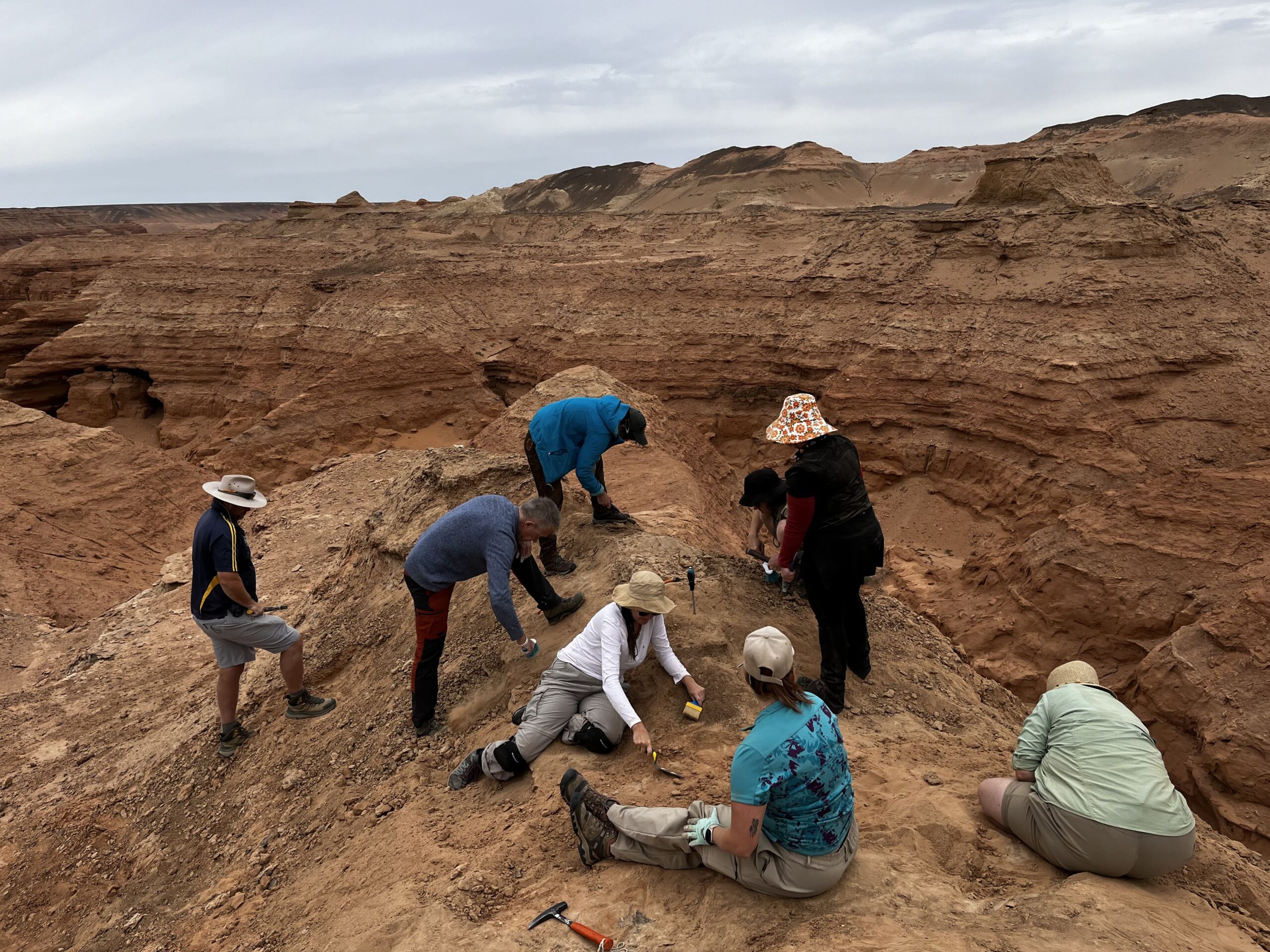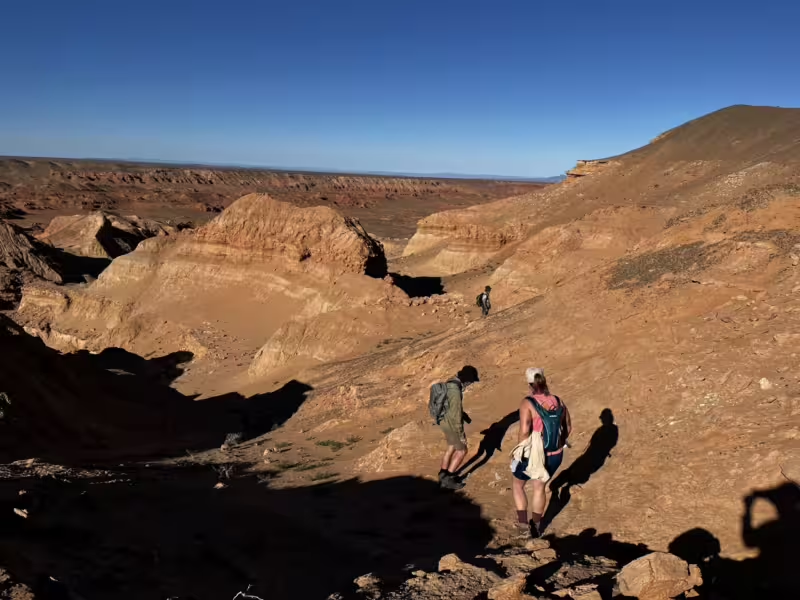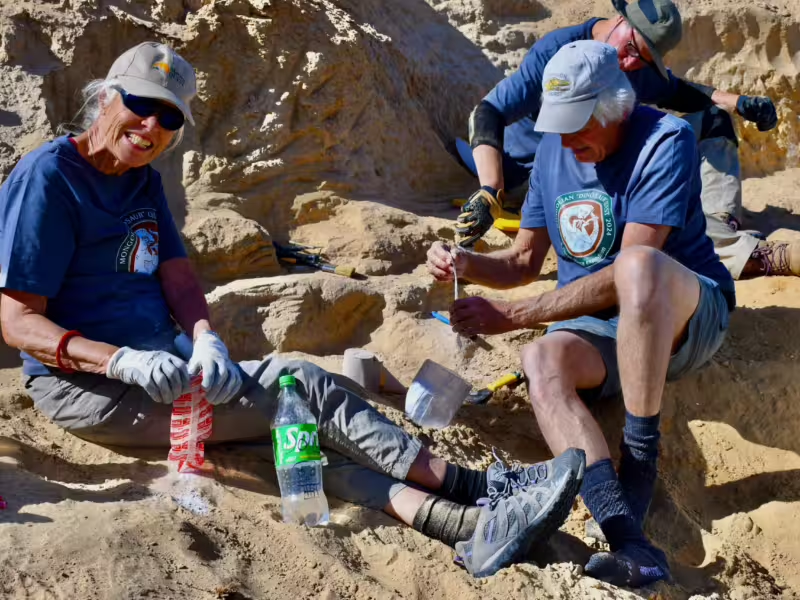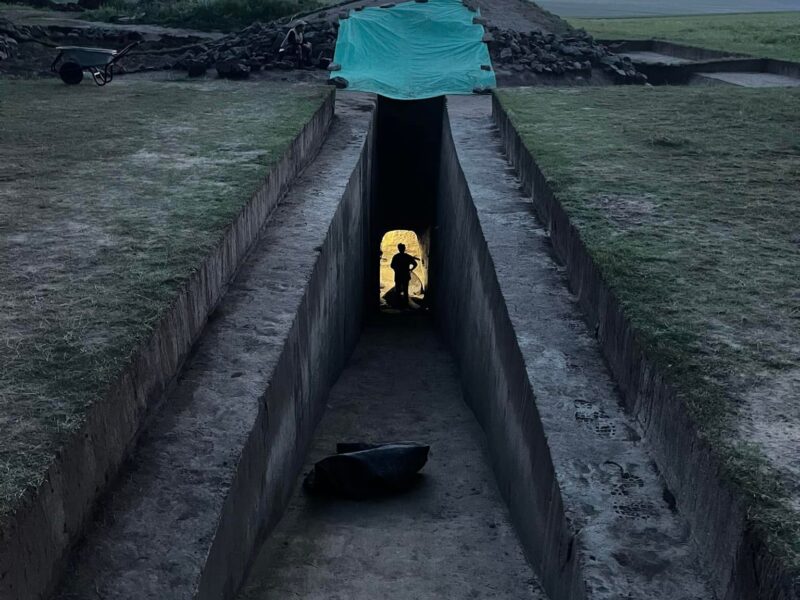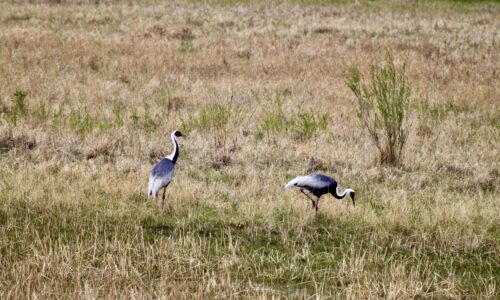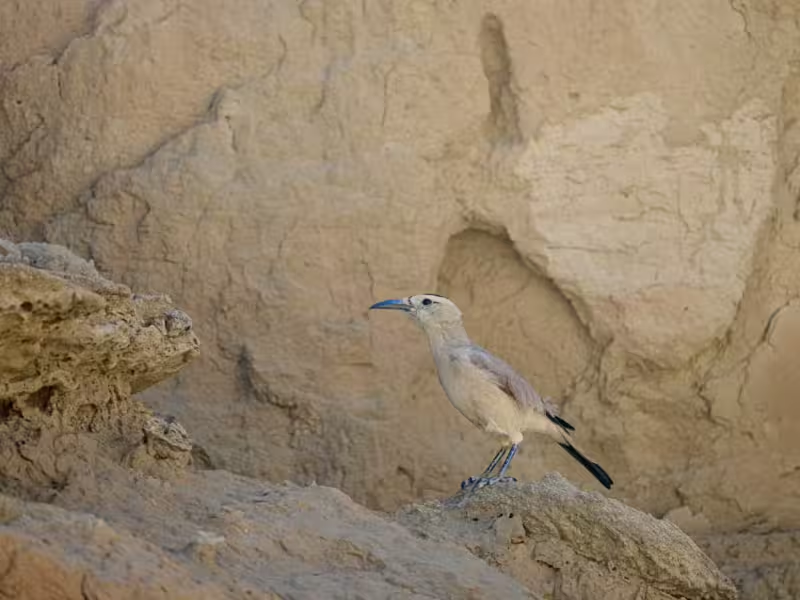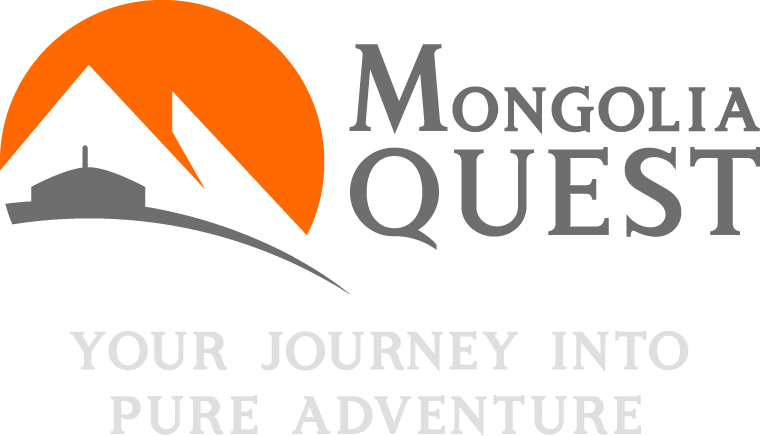Fostering Paleontological Discoveries
Mongolia is renowned for its exceptional paleontological sites, such as the Flaming Cliffs and Nemegt Valley in the Gobi Desert, which have produced some of the world’s most significant dinosaur fossils from the Cretaceous period, approximately 60 to 90 million years ago. By the late 20th century, Mongolia represented a quarter of all known Cretaceous dinosaur species, with 20 genera of dinosaur eggs identified in the Gobi Desert. However, since the early 2000s, illegal fossil poaching has threatened this heritage, prompting ongoing international efforts to repatriate confiscated specimens
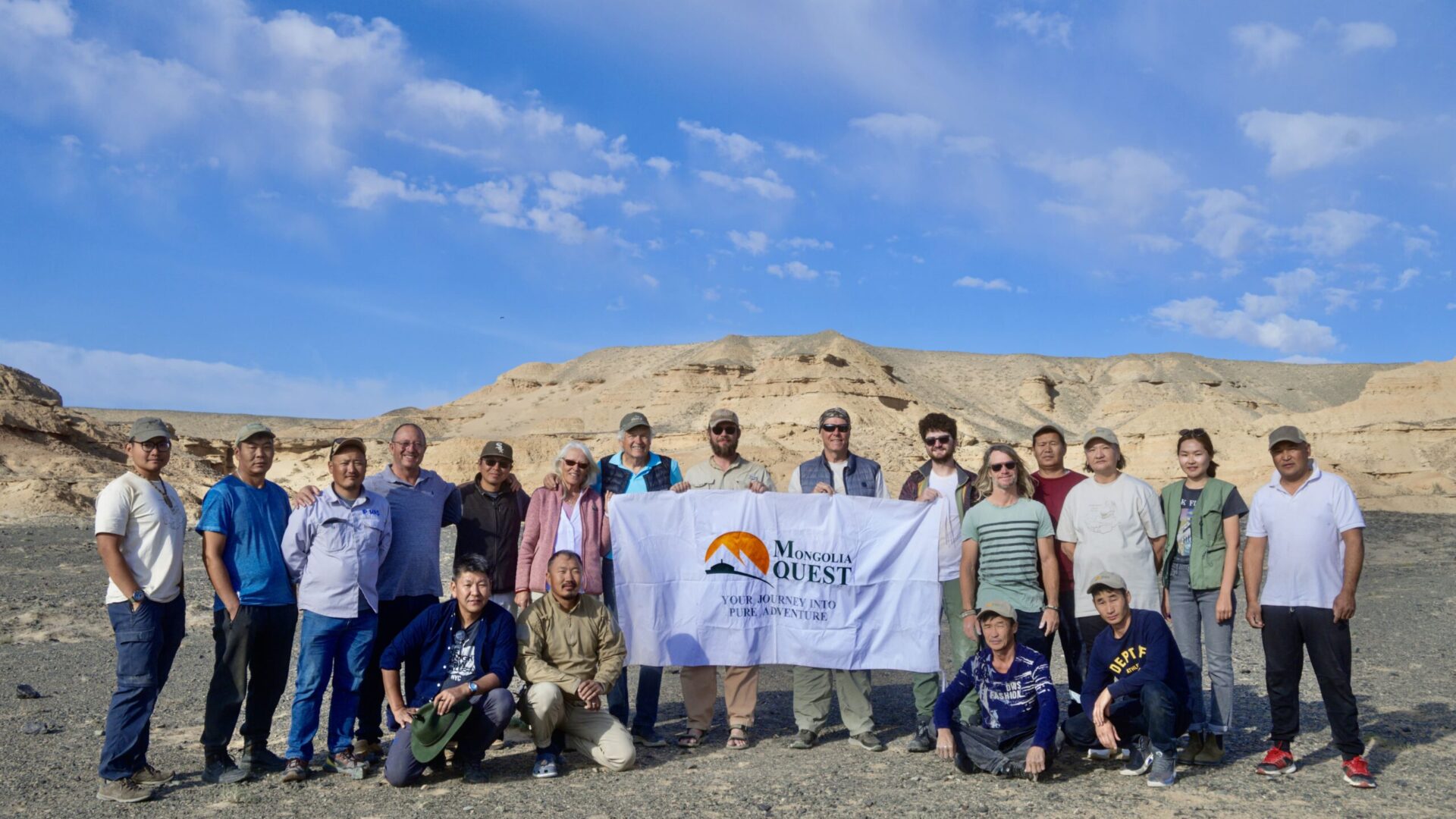
Through our “Lost Dinosaurs of The Gobi Desert” tour, we aim to address the issues of fossil poaching and the illicit fossil trade, safeguarding these invaluable discoveries for scientific inquiry and future generations.
Our paleontological tours, in collaboration with distinguished experts such as Dr. Philip Currie and Dr. Eva Koppelhus from the University of Alberta, as well as Dr. Phil Bell and Dr. Nicolás Campione from the University of New England, provide participants with a unique opportunity to engage in authentic excavation activities. This year, we expanded our partnership with the Natural History Museum of London, organizing a joint expedition led by Dr. Susannah Maidment, senior researcher at the museum.
All fossils discovered during our expeditions are meticulously cataloged and subsequently sent to the Institute of Paleontology at the Mongolian Academy of Sciences. The support of this institute is crucial for the success of our expeditions and international partnerships, as they provide us with the necessary excavation permits, and their paleontologists actively assist and engage in our fieldwork.
Our tour participants actively contribute to pioneering research, helping to unveil Mongolia’s prehistoric narrative while immersing themselves in the scientific methodology.
Join the expedition and experience life as a field member in the Gobi Desert!
Advancing Archaeological Knowledge
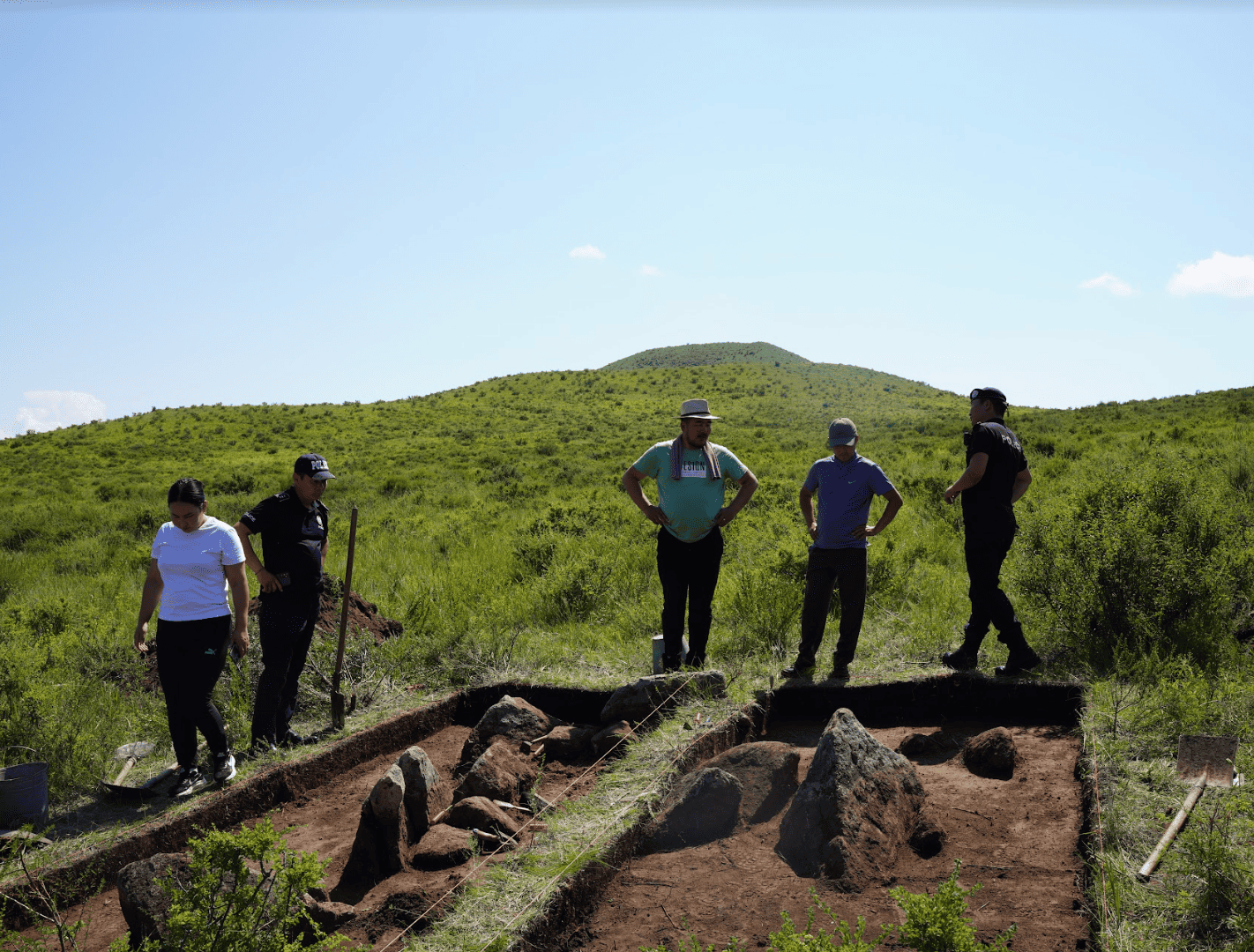
Mongolia’s ancient civilizations have left behind a wealth of archaeological treasures, from the petroglyphs in the Altai Mountains to the remnants of Kharkhorin, the historic capital of the Mongol Empire. Although some scholars debate the characterization of the Mongols as wild barbarians, archaeological evidence reveals a different narrative, showcasing their sophisticated civilization, complete with artifacts and established political headquarters.
The ancestors of the Mongols were primarily herders, with agriculture playing a secondary role in settled areas. During certain periods, royals and nobles resided in established settlements, which served as administrative and cultural hubs, although they continued their nomadic lifestyles.
Our archaeology tours, led by Dr. Iderkhangai, one of Mongolia’s foremost archaeologists from the National University of Mongolia, offer exclusive access to these significant sites. Dr. Iderkhangai is renowned for his groundbreaking discovery of Luut City (Long Cheng), the summer palace of the Xiongnu kings (Chanyus), uncovered in 2020. He has also recently uncovered over 200 aristocratic tombs spanning three key periods: the Late Bronze Age, the Xiongnu, and the Xianbei. This discovery marks the first time that artifacts from these three pivotal eras have been found together in Mongolia.
These extraordinary findings deepen our understanding of Mongolia’s ancient past, providing travelers with the opportunity to engage directly with transformative excavations. Participants in our archaeology tours can experience expedition-style camps, collaborate with Mongolian archaeologists, and take part in digs, documentation, and lectures, all set against the breathtaking landscapes of the Central Mongolian steppe.
Revenue generated from these tours supports further excavation, preservation, and documentation efforts, ensuring that these treasures continue to enrich humanity’s understanding of history.
Be a Part of Dr.Iderkhangai’s team today!
Exclusive Learning Journey with Dr. Christopher Atwood
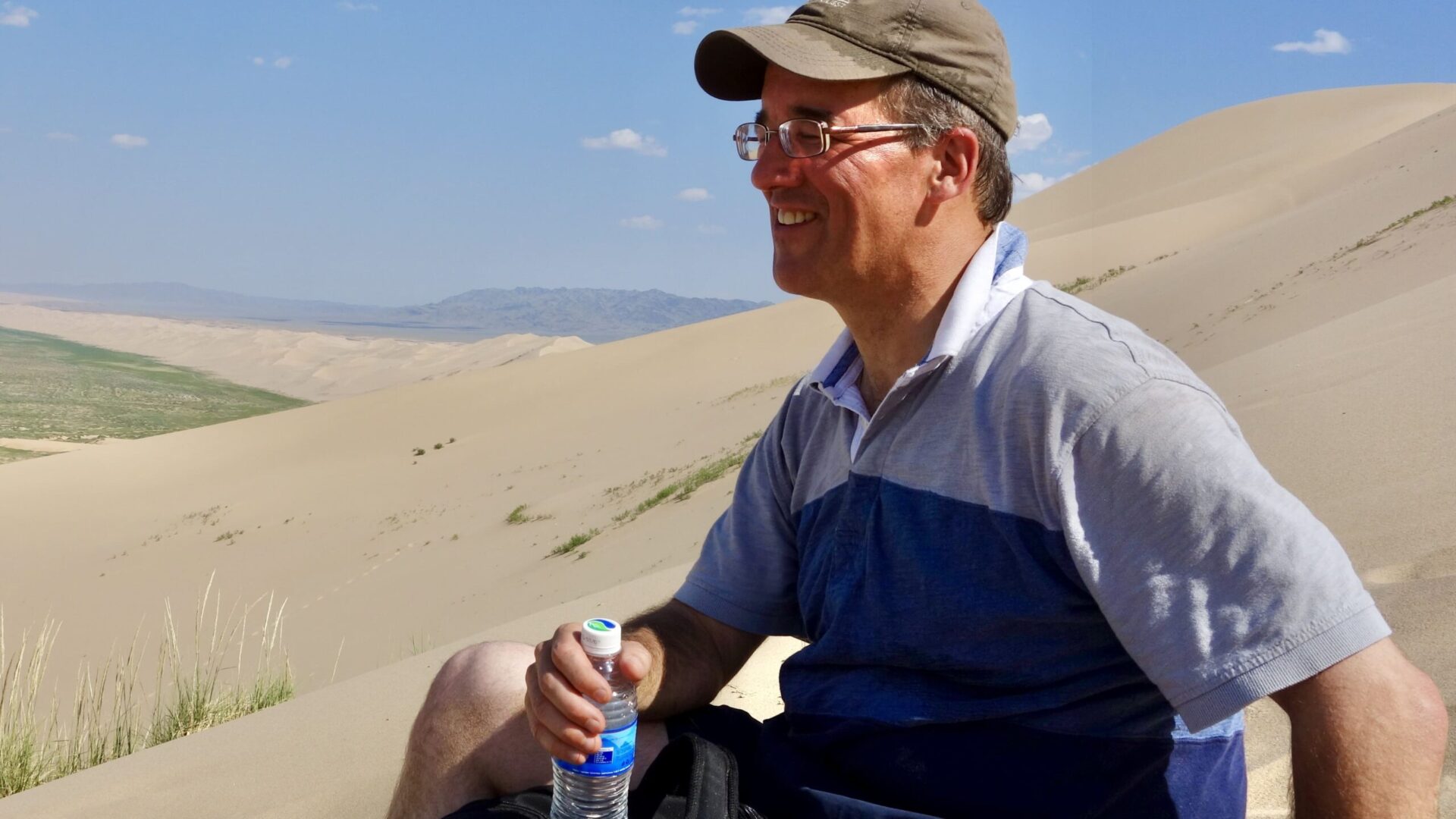
We are proud to present a distinctive educational expedition guided by Dr. Christopher Atwood, a distinguished expert on Mongolia from the University of Pennsylvania. This thoughtfully designed journey traverses the eastern steppes of Mongolia, the Altai Mountains, and the Gobi Desert, seamlessly integrating history, nomadic traditions, and natural sciences into an extraordinary learning opportunity.
In our “True Mongolia Quest with Dr.Christopher Atwood” tour, participants will visit significant locations associated with Chinggis Khan, uncover the rich cultural legacy of the Altai Mountains, and explore the mystic Gobi Desert, a crucial area for paleontological, geological, climatological, and human evolutionary research, all while participating in discussions and activities facilitated by Dr. Atwood. The tour also includes chances for fishing, trekking, and horseback riding, providing a perfect blend of adventure and education.
Join Dr.Atwood in his quest for True Mongolia!
Supporting Scientific Research Through Strategic Collaborations
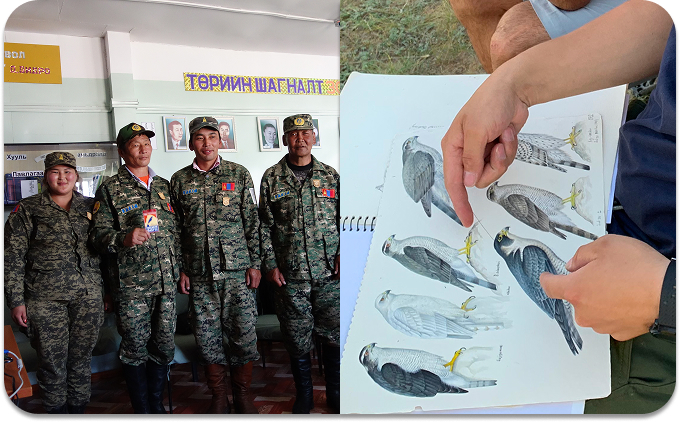
We engage in collaborative efforts with universities, national parks, and research institutions both locally and internationally, ensuring that our tours are guided by the most recent scientific research. These partnerships promote cross-cultural dialogue and significantly enhance the scientific and educational impact of our programs.
A notable collaborator is the Mongolian Bird Conservation Center (MBCC), which possesses extensive expertise in diverse avian research conducted by both Mongolian and internationally trained scientists. The MBCC undertakes a variety of wildlife studies, including breeding ecology, habitat utilization with nomadic lifestyles, community-based research, transect surveys, nest monitoring, and the capture and marking of various bird species, as well as satellite and radio tracking. In exchange for facilitating joint travel programs that feature MBCC’s biologists as guest leaders and leverage their extensive database, Mongolia Quest is committed to supporting MBCC’s various initiatives, both financially and non-financially, to promote science-based, sustainable tourism in Mongolia.
Join Mongolian Top Bird Researchers on Your Journey
To effectively advance sustainable tourism while fostering scientific development is essential. Therefore, we collaborate closely with Mongolian Special Protected Area authorities and national parks.
We provide training for local park rangers in protected areas to ensure that tourism activities align with sustainability practices, incorporating modern methodologies and technologies into their operations. This support includes :
- Assisting in the development of management plans;
- The construction of trails and signage to facilitate efficient and low-impact tourism.
- By partnering with tour operators like us, national parks can generate significant revenue while simultaneously preserving their natural environments
Supporting Young Scientists
As part of our citizen-science tourism initiatives, we are dedicated to fostering the development of young and aspiring local scientists. Among them are Khuderchuluun, a promising young biologist, and her botanist spouse, Khaliunaa. This couple made an exciting discovery of a new species of Saussurea plant in western Mongolia during their wildlife survey. We are thrilled about this significant finding and have been providing financial support for their field trips to gather additional samples.
Currently, we are assisting them in their research on phylogenetics, working to establish the sequence of Saussurea, and facilitating further molecular studies. We are also actively seeking collaboration with a research institution outside of Mongolia to support these two emerging biologists.
Moreover, a portion of our tour revenue is allocated to grants and fieldwork projects, which sustain ongoing research and conservation efforts. To encourage the next generation of scholars, we offer a 50% discount on select educational and conservation tours through the Mongolian Learning Academy, ensuring that these valuable experiences are accessible to eligible students and rangers.
Collaborating with schools to empower youth
We are pleased to support and enhance the knowledge of youth through our initiatives. By partnering with schools, we design and facilitate field trips across the country, focusing on various scientific disciplines tailored to different age groups. Our curriculum combines scientific education with spiritual and cultural insights, as well as a deeper understanding of nomadic lifestyles.
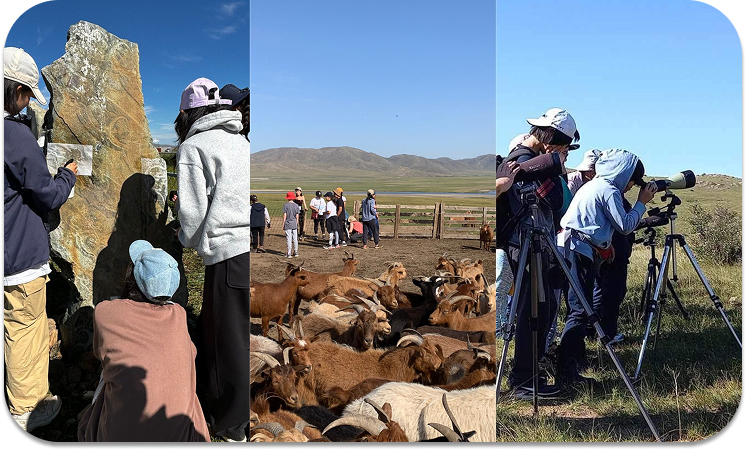
Over the past decade, students have participated in various activities and scientific projects, including archaeology, paleontology, and biology studies. These experiences have provided them with a well-rounded understanding of Mongolia’s history, environment, and culture.
Another highlight is Chukh Summer Camp, launched in 2024 by The Chukh Bird Research Station aimed at educating youth, focusing on wetland conservation, bird research, and biodiversity. We were delighted to support this project by advising on methodology.
Interested in supporting young mind?
Inquire for custom school field trip now
Your Impact As A Traveler: Enhancing Citizen Science Efforts
As a traveler with Mongolia Quest, you play a vital role in promoting scientific advancement through engaging citizen science projects. Our tours offer you the chance to directly participate in essential research initiatives. By taking part in these activities, you provide crucial data, photographs, and field observations that assist researchers in making informed choices regarding the preservation of Mongolia’s unique cultural and natural heritage.
If you have a passion for science, education, and impactful travel, we encourage you to join us in expanding your knowledge while discovering the breathtaking landscapes of Mongolia. Participate in innovative research, collaborate with top experts, and dive into meaningful exploration. Discover our Educational Tours now and merge your curiosity with an adventure that makes a significant difference in the realms of science and education.

